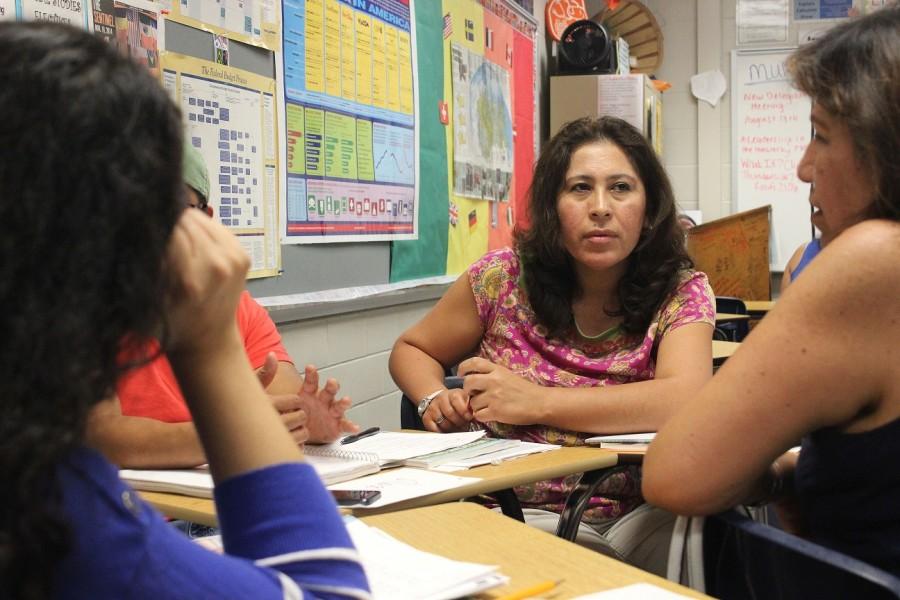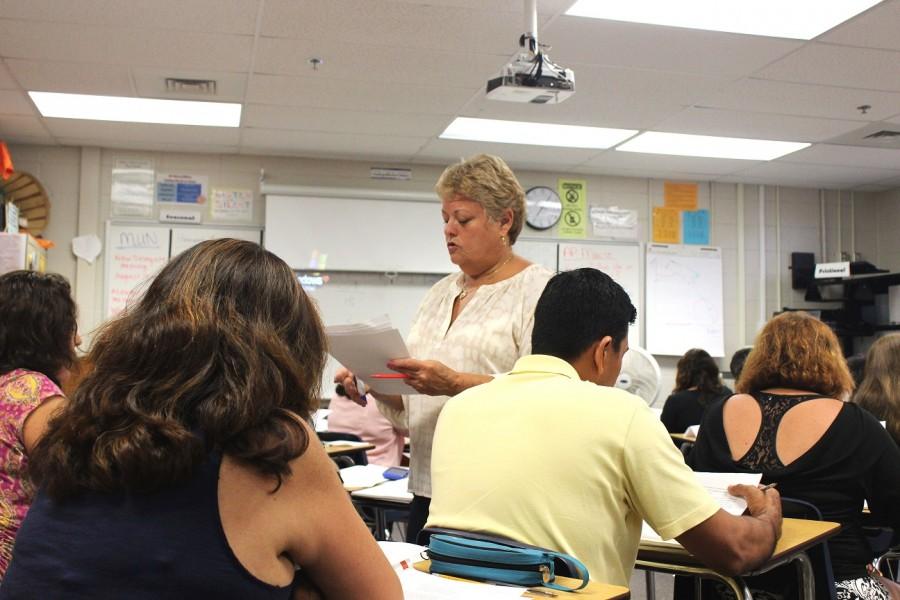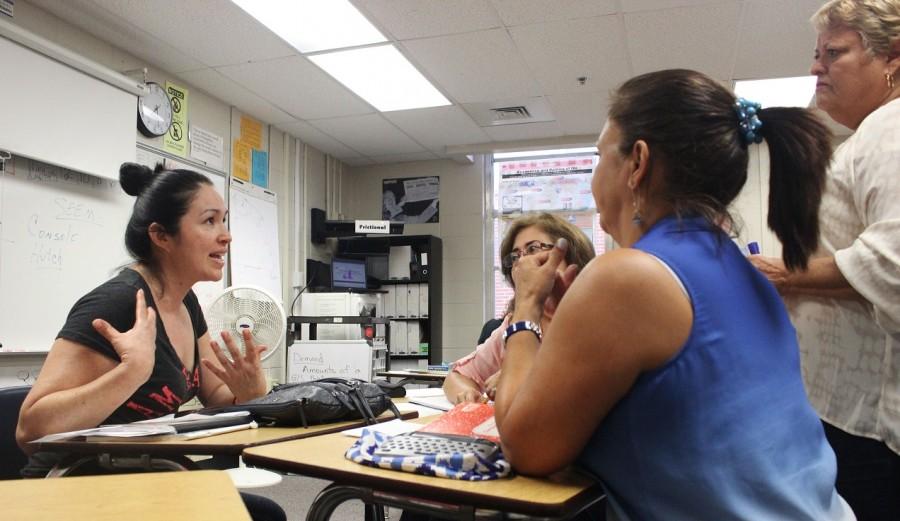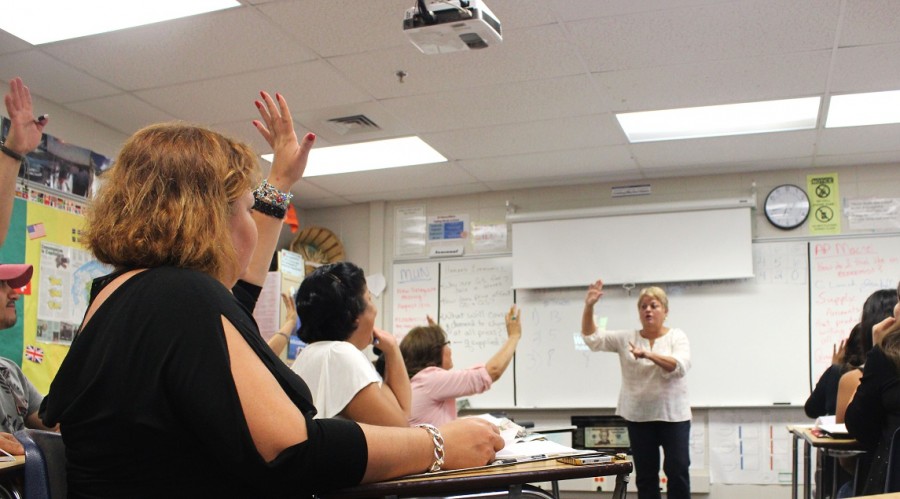English class for non-native adult speakers meets on Tuesdays and Thursdays, aims to support growing community
Teacher Hannah Kateb-Bolaños: “Promise me that you will practice your English when you go home!” Class: “I promise.”
September 29, 2014
In children’s desks, grown men and women sit patiently, awaiting “better” lives, awaiting a higher paying job, awaiting an opportunity to earn more collegiate schooling, awaiting fulfillment of their unique definitions of success—awaiting the time when speaking English flows naturally.
“My number one dream is to speak English with fluency. This is why I am here every single Thursday. I want to make my kids proud and I want to be able to say that I did it,” Myriam Alvarado said.

Stumbling over their words, students listen to their classmates navigate their way to precise expression.
Once a week, several immigrants, most of them parents, make their way to North Cobb High School for evening English classes and help with assimilating into American society.
“Knowing how to speak English is very important. It’s how you will get a job. It’s how you will build a life. Of course, you can not forget where you came from but you must learn how to function in this country. English is essential,” Hannah Kateb-Bolaños, volunteer program instructor and English teacher at Emory University said.
Funded by the Mexican Consulate, programs to teach immigrants English exist across the United States. Martha D’Arcy, North Cobb’s parent resource specialist, and other respected figures in Kennesaw-Acworth’s Hispanic community recognized a dire need to erect a program here at North Cobb.
“We noticed that many of the non-English speaking parents were not involved in their children’s school activities. When we, the school, asked why they remained so uninvolved, they said ‘We do not speak English, so what is the point? We cannot understand what anyone says and they cannot understand us.’ We saw a necessity for these classes. We needed to establish a way for them to communicate,” D’Arcy said.
Going on three years, the program has helped approximately 150-200 people learn English, this year’s students included. With encouraging words like “NO SSN REQUIRED” and “FREE,” the program invited all, and all come present with a vision and dream, though some journeys measure longer and more difficult than others.
Exuding tenacity and determination, Maira Sabillión, Venezuelan and Honduran native, travels two hours to North Cobb every Thursday, taking two busses and catching a ride with teacher Kateb-Bolaños.

As each student reads a passage from a reading aloud, teacher Hannah Kateb-Bolaños listens for lapses in correct pronunciation.
“I have been in this country for one year and my biggest struggle is my English. But, I’m working on it. I come to this class every, single Thursday. When I first came to America, I started listening to the radio everyday. I tell you, I didn’t understand a thing! I continued listening and slowly I started understanding a little bit at a time. Now, I understand. Because I’m so consistent with this practice and because of the program, my ears have opened, if you will,” Sabillión said.
The English program provides two classes for two English speaking levels: Tuesday’s beginner class where students learn basic English, and Thursday’s advanced class where only English is allowed to be spoken, where precise pronunciation, and proper word choice are fine tuned. As students’ English progress, the program integrates Rosetta Stone into the curriculum.
North Cobb’s program vouch many success stories: A mother could finally foster a deeper relationship with her already assimilated children, an entrepreneur established a now successful hair salon, and bearers of bachelor degrees from their home countries became able to practice their careers in America.
More than just English classes, they are rooms full of determined people; rooms full of stories. Filling the air with questions and advice, warmth radiates from the people, all of them rooting for each other’s success. Smiles and laughter reflect the joy in being given the opportunity to participate in such a life-changing program and learn an essential part of American society.

English students practice conversing about their days, children, jobs in English.







